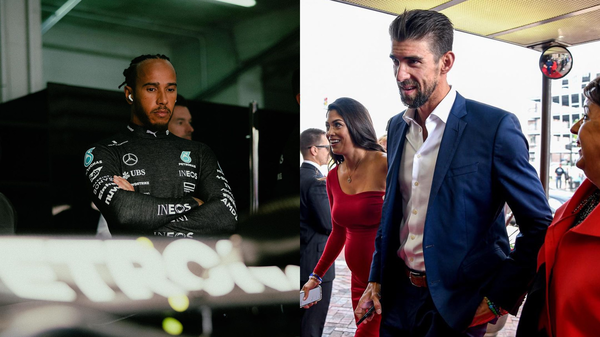

To the world, Lewis Hamilton’s career is perhaps one of the greatest Formula 1 stories. And why wouldn’t it be? Hamilton, after all, has seven championships, a staggering 105 Grand Prix wins, and a knighthood to his name. But as impressive as the wins are, behind the glamor and roar of engines, Lewis Hamilton’s life has been a journey of internal battles silently fought. In a recent candid conversation, he went on to talk about something that is often ignored in racing—mental health.
Lewis Hamilton went on to talk about his battles. Since Hamilton was 13, he has dealt with depression. A battle that did not end despite rising through the ranks of racing. For Hamilton, it all began at school, where he faced bullying. “I’ve struggled with mental health through my life,” he revealed. “Depression. From a very early age, when I was, like, 13.” Hamilton’s story is one that resonates deeply, not only with those who face similar struggles but also with fellow athletes.
In fact, Hamilton’s story is one that mirrors that of another legend. Swimming royalty Michael Phelps, who has won 23 Olympic golds, also had similar issues when it came to mental health. “We went five or six years without missing a single day. 365 days. No days off, no birthday, no Christmas. We were in the water every single day,” said Phelps. This pursuit for greatness, while celebrated, came at a heavy cost.
ADVERTISEMENT
Article continues below this ad
“I can go back to 2004 and say that was when I first experienced it. That was the first time I came across depression coming back from the 2004 Olympic Games. I suffered from post-Olympic depression pretty bad,” said Michael Phelps, recalling. While Phelps first experienced depression when he was at the 2004 Olympics, for Hamilton, it has been a life-long struggle. As Hamilton himself puts it, “There was no escaping it.”
Emotionally talking about his early, Hamilton went on to say, “You experience it at school, in the parks, walking through town. I didn’t understand it, and my parents never spoke to me about it. They never explained what was going on. My dad was just, ‘Keep your head down, hold it in, don’t say anything, just beat them on the track, that’s all you can do.’” While the idea behind the stoicism was to protect, it often left scars that lasted. As Michael Phelps puts it, “We’ve seen how many people are struggling from similar things that I’ve struggled from, or Simone Bile struggles from.”
Yet the battle against stigma continues. For both Michael Phelps and Hamilton, at the end of it all, it is not about the wins but about what happens when the laps are done and the crowds hush. As Hamilton himself said, “Winning championships is an amazing thing, but what are you doing with it? What are you doing with your time on this planet?” It’s a question that goes beyond the track and into the very core of human existence. But how exactly did Hamilton get to the stage of realization?
Lewis Hamilton’s era of refinement, not retirement
Let’s go back in time to 2020 when Lewis Hamilton’s career took a turn. That year, Lewis Hamilton found the space to find himself. While continuing to create history on the racetrack, Hamilton’s focus expanded beyond F1. Hamilton soon became a strong advocate for change. He also launched the Hamilton Commission to address the underrepresentation of Black folks in UK motorsport and the STEM sectors. Through Mission 44, a charity he founded, Hamilton invested £20 million of his own money to help people worldwide. It was the point where the world realized that Hamilton’s legacy will not be one just of great races.
ADVERTISEMENT
Article continues below this ad
What’s your perspective on:
Does Lewis Hamilton's mental health confession make you respect him more as an athlete and a person?
Have an interesting take?

ADVERTISEMENT
Article continues below this ad
Off-track, too, Hamilton was walking into spaces he had never explored. He stepped into the fashion scene music and even co-founded Almave, a non-alcoholic drink brand. If that wasn’t enough, he also launched a film production company to give diverse stories a space. “Film has changed my life,” he recalled. Although all the ventures brought a new sense of life into him. It was not until he found meditation that he found his calm. “I would struggle initially to calm my mind. But it’s a really great way of getting in touch with myself, my inner feelings, understanding what I want to do,” he added.
Lewis Hamilton is at peace, but that doesn’t mean he has lost his heart for racing. 2024 was Hamilton’s final season with Mercedes, post which the world expected him to retire. Instead, he came back with an announcement that should worry the 2025 racers. Lewis Hamilton will be back on the F1 tracks next season. But this time, he will be in the reds of Ferrari!
ADVERTISEMENT
ADVERTISEMENT
ADVERTISEMENT
ADVERTISEMENT


Does Lewis Hamilton's mental health confession make you respect him more as an athlete and a person?